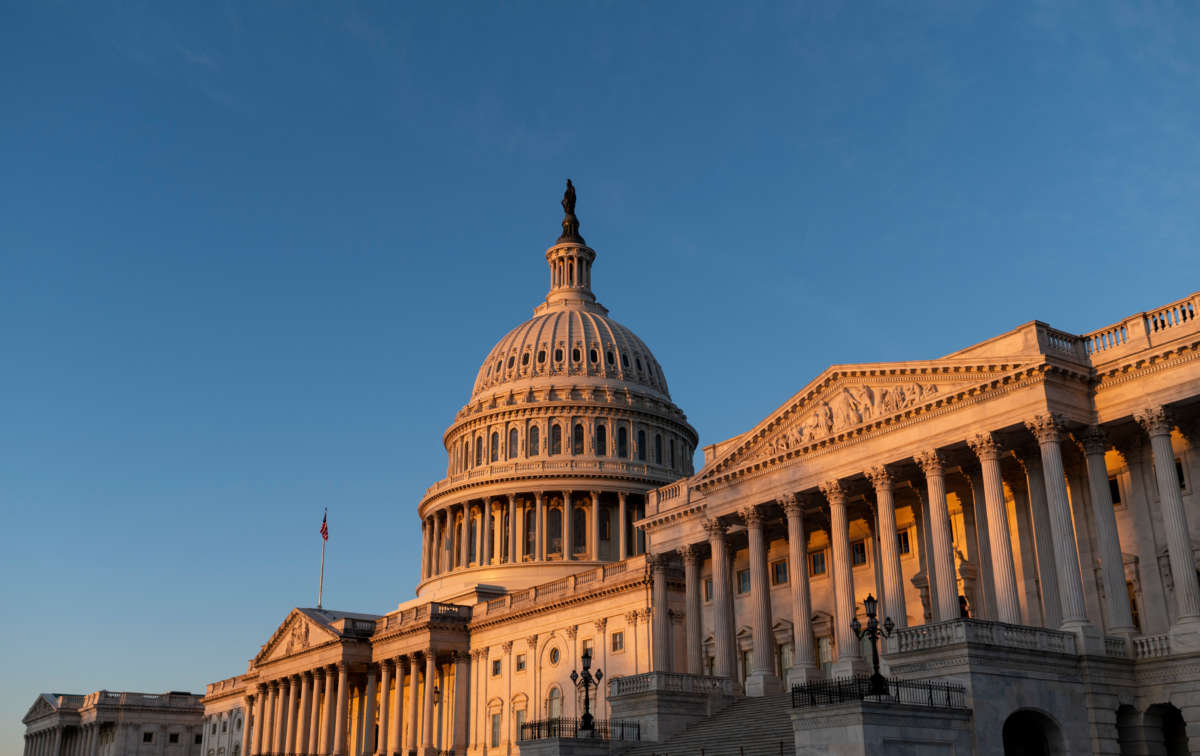New polling published this week continues to demonstrate that Democrats are gaining momentum for the 2022 midterm races, just two months before Election Day.
The attitudes of voters could, of course, change between now and then, but historically, most Americans’ minds have been made up on who they plan to vote for at this point in the election season. In the 2018 midterms, for example, an average of polling data collected on September 1 of that year showed Democrats outpacing Republicans nationally by around 8.4 points. After all the ballots were counted on Election Day that year, Democrats wound up winning by that exact margin.
According to a new Wall Street Journal poll, Democrats are leading Republicans in this year’s midterm races, too, though by a much smaller margin.
Respondents in the poll were asked a generic ballot question: which congressional candidate were they more likely to vote for if the election were held today? Forty-seven percent said they’d pick the Democratic candidate in their home district, while 44 percent said they preferred the Republican option.
That’s a flip from where things stood in the same poll in March — at that time, 46 percent said they wanted a Republican to win, while only 41 percent said they would choose a generic Democratic candidate to represent them.
@WSJ poll: Democrats hold a slight edge over Republicans, 47% to 44%, when voters are asked which party they would support in their congressional district if the election were held today, GOP had led by 5 points in March. https://t.co/ZLrwLb5ZNR pic.twitter.com/IcGwVmXYN3
— John McCormick (@McCormickJohn) September 1, 2022
What’s changed? The Wall Street Journal poll asked respondents questions about a number of issues, and whether certain events over the past year made them more or less likely to vote.
The Supreme Court’s decision to overturn abortion rights that were protected in Roe v. Wade appears to have a significant impact on voters’ decision to cast a ballot this year, with 56 percent saying that decision will make them more likely to vote. Gun violence, too, will play a role in turning out votes, with the same rate, 56 percent of respondents, saying that the issue will make it more likely that they’ll take part in the midterms this year.
Even the search warrant executed by the FBI at former President Donald Trump’s Mar-a-Lago residence seems to be motivating at least some voters to head to the polls. While a majority (51 percent) said the event will have no impact on their vote, 47 percent said it makes them more likely to vote this year.
The Wall Street Journal poll matches others in recent days that also suggest Democrats have a fair shot at retaining control of Congress this fall. In a similar generic ballot question posed by an Economist/YouGov poll published on Wednesday, 46 percent say they intend to vote for a Democrat while only 38 percent say they’ll vote for the Republican in their district. A generic ballot question from a Politico/Morning Consult poll says 47 percent of voters would back a Democrat if the House races happened today, with 42 percent saying the GOP nominee would get their votes.
While some polls still show Republicans ahead of Democrats — which is the expected result, given that traditionally the party of a newly elected president tends to lose seats in their first midterm contests — Democrats do appear to be gaining ground, making it a tight race overall. Indeed, at the start of June, an aggregate of polling data collected by RealClearPolitics showed that Republicans had a 1.9-point advantage over Democrats in the polls. Today, Democrats are ahead, though just barely, beating Republicans in an average of polls by 0.1 points.
Both findings are within most polls’ margins of error. But the latest polling data is enough to have election prognosticators change their tune on ratings they have previously made for several congressional races.
The Cook Political Report, for example, changed its ratings for five House races on Thursday in a way that favors Democrats’ chances. Four seats that were previously deemed “toss up” are now “lean Democrat,” according to their analysis, with a fifth seat in Alaska — recently won in a special election by Democrat Mary Peltola — going from “lean Republican” to “toss up” for the general election.
Before Midnight: Last Chance to Have Your Gift Matched!
Before midnight tonight, all donations to Truthout will be matched dollar for dollar up to $11,000! Thanks to a generous supporter, your one-time gift today will be matched immediately. As well, your monthly donation will be matched for the whole first year, doubling your impact.
We have just a few hours left to raise $11,000 and receive the full match.
This matching gift comes at a critical time. As Trump attempts to silence dissenting voices and oppositional nonprofits, reader support is our best defense against the right-wing agenda.
Help Truthout confront Trump’s fascism in 2026, and have your donation matched now!
